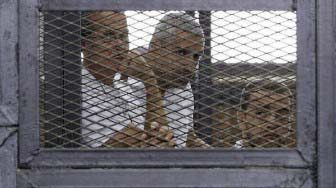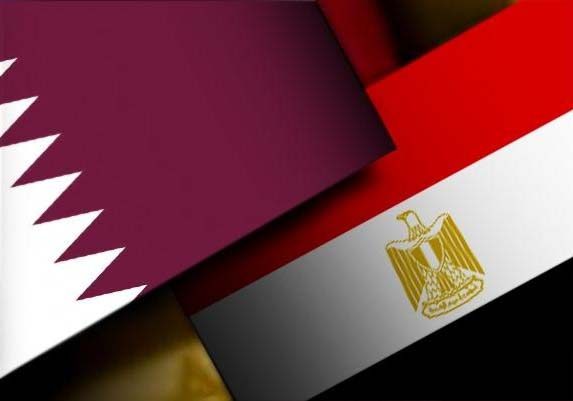
With reporting from Heba Fahmy
Diplomatic tensions have again flared up between Qatar and Egypt, this time over escalating violence in Libya.
Early this morning, Qatar announced through its state news agency that it was recalling its ambassador to Cairo “for consultations” over an inflammatory statement made by Egypt’s delegate to the Arab League.
Such moves are generally used to publicly display diplomatic disapproval between countries.
The charge came after Qatar expressed reservations about a clause in a joint Arab League communique that welcomed Egypt’s recent air strikes on ISIL targets in Libya.
Qatar News Agency’s statement did not repeat the offending comments.
But according to Egypt’s state television network, Egyptian Arab League delegate Tariq Adel said that Qatar’s hesitation was about ”Egypt’s legitimate right to defend itself,” and revealed Doha’s “supportive stance of terrorism.”
He said he wasn’t surprised at the position taken by Qatar, which is ”constantly taking stances opposing Egypt,’’ adding that Doha’s position deviated from the “Arab consensus.”
Air strikes
Earlier this week, ISIL released a video depicting the execution of 21 Egyptian Christians who had been kidnapped in Libya. In response, Egypt launched air raids on militant camps, training sites and weapons storage areas in the neighboring country.
While Cairo lauded the operation as a success, footage aired by the Qatar-based Al Jazeera showed evidence that civilians were injured in Egypt’s air raids:
In a statement released early this morning, Qatar ambassador Saad bin Ali Al Mohannadi, director of the country’s Arab affairs department, said that there should be consultations between Arab League members before one country launches unilateral military action that could result in civilian casualties in another member state.
He also condemned the killing of the Egyptians at the hands of ISIL, but added that:
“Qatar should not be mentioned as a reason for any failure by the Egyptian government. The State of Qatar denounces such a tense statement, which confuses the need to combat terrorism and the brutal killing and burning of civilians.”
Two steps back
The latest diplomatic rift comes at a time when strained relations between Qatar and Egypt had appeared to be improving.

The two countries had been at odds following the 2013 ouster of former Egyptian president Mohamed Morsi.
Qatar has supported Morsi and his Muslim Brotherhood political party, which Egypt subsequently declared a terrorist organization.
Relations continued to fray after Qatar condemned Cairo’s crackdown on Muslim Brotherhood supporters.
Meanwhile, Egypt demanded that the Gulf country extradite prominent Islamic cleric Sheikh Yusuf Al Qaradawi, who is an Egyptian-born naturalized Qatari citizen who has repeatedly denounced the military-backed Egyptian government.
But in recent months, there had been signs that tensions between the two countries were dissipating.
Egyptian President Abdel Fattah al-Sisi met with a special envoy representing Qatar’s Emir in December, which was followed by an announcement that Doha-based Al Jazeera Media Network – which some had accused of carrying a pro-Muslim Brotherhood editorial bias – would suspend its Egypt-focused channel, Al Jazeera Mubasher Misr.

Additionally, Egypt released from prison two Al Jazeera journalists out on bail and freed another outright after the trio spent more than a year in custody on disputed charges of supporting the Muslim Brotherhood.
The moves came amid a Saudi-brokered effort the mend relations between the two countries led by King Abdullah bin Abdulaziz al Saud, who died last month. His passing raised questions in the Egyptian media over whether reconciliation efforts would continue.
Qatar and Egypt had previously found themselves supporting opposing camps in Libya. Over the summer, military planes from Egypt and the UAE bombed fighters in Tripoli that were believed to be part of a faction that received arms and financial support from Qatar.
Thoughts?







